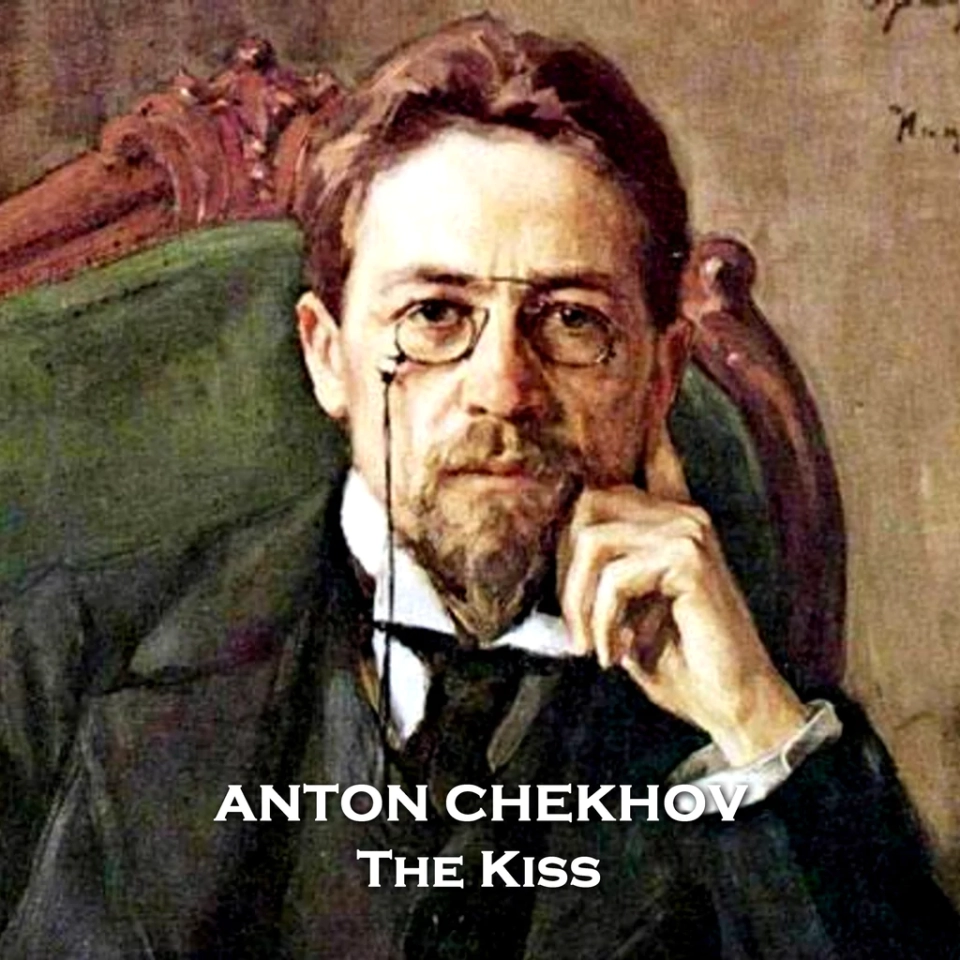 Chekhov generally writes about stock events, and Chekhov’s stories customarily have characters from everyday life. Chekhovian style comprises characters’ altering moods and genuine descriptions of people and objects objectively, and his originality in describing the psychological changes of characters makes his works unique and immersive. Thus, his characterisation and implicit and explicit meaning behind characters are outstanding. To illustrate, in The Cherry Orchard, Chekhov uses Firs, an old manservant, as a remembrance of the past, and his death symbolises the fall of Old Aristocracy implicitly. One can see a similar characterisation and usage of characters in The Kiss. There are flat characters like Von Rabbek, Von Rabbek’s wife, Lobuitko, Merzliakoff, ladies and the officers who do not sharply change their moods and feelings throughout the story. However, Riabovitch completely fits the Chekhovian characterisation as a round character with his change of psychology and emotions. This paper will explain how Chekhov involves characterisation, gives his message via characters, and unfold characters with Chekovian examples.
Chekhov generally writes about stock events, and Chekhov’s stories customarily have characters from everyday life. Chekhovian style comprises characters’ altering moods and genuine descriptions of people and objects objectively, and his originality in describing the psychological changes of characters makes his works unique and immersive. Thus, his characterisation and implicit and explicit meaning behind characters are outstanding. To illustrate, in The Cherry Orchard, Chekhov uses Firs, an old manservant, as a remembrance of the past, and his death symbolises the fall of Old Aristocracy implicitly. One can see a similar characterisation and usage of characters in The Kiss. There are flat characters like Von Rabbek, Von Rabbek’s wife, Lobuitko, Merzliakoff, ladies and the officers who do not sharply change their moods and feelings throughout the story. However, Riabovitch completely fits the Chekhovian characterisation as a round character with his change of psychology and emotions. This paper will explain how Chekhov involves characterisation, gives his message via characters, and unfold characters with Chekovian examples.
At the story’s beginning, Von Rabbek invites all officers to a tea party whose name is a reminiscence of The Count. The Count invites all the officers to a tea party before Von Rabbek, and he insists them stay at his home and tells long stories from famous writers. The officers get tired gradually and start to yawn. The Count also has expensive paintings, old engravings and antique goods. Von Rabbek also has a renowned house like The Count and also a cornloft. This house is massive that Riabovitch gets lost when he tries to find the hall. Chekhov symbolises aristocracy and richness towards his profound depiction of goods and characters and also the characterisation of The Count and Von Rabbek.
Chekhov depicts Von Rabbek’s wife as tall, slender, and graceful, and her appearance is like ex-Empress Eugenie, the famous and legendary-beauty lady. Thus, Chekhov emphasises the lady’s fake smile when she greets officers, as the necessity of her social status. Furthermore, while they all are having their tea party, the ladies and Von Rabbek embroil about military stuff, and Von Rabbek’s wife involves officers in a quarrel to check whether they are happy or not. Chekhov shows how manipulative aristocrats are in this scene. Thus, There are also symbols of how lower-class people admire high-class people. To illustrate, when officers leave the house of Von Rabbek, they all dream of having a big house, an orchard, and lots of guests in their house. Thus, when Riabovitch sees the fake behaviours of the Rabbek Family, he admires their discipline and talent for manipulation.
Lobuitko and Merzliakoff, who are flat characters, have roles to emphasise Riabovitch’s average character. Merzliakoff, who seems to be a logical and intelligent character, can have consistent decisions. Lobuitko has an uncontainable sense when she guesses there will be women in Von Rabbek’s house. However, Chekhov describes Riabovitch as the shyest, most humble and average officer among officers. Riabovitch saw most of the goods in Rabbek’s house before; however, he knows less about the goods in the house. His blindness is called ‘Hysterical Blindness’ in psychology.
He also does not know anything about the man and woman relationship, including holding a woman’s waist while dancing and the emotion of kissing a woman. He feels so attracted after the lady’s kiss that he instantly falls in love with her, searches for her everywhere, and dreams about her every night. Thus, these feelings lead him to get rid of his thoughts, including he is a shy and average person, and he partly gains his self-confidence. Chekhov here emphasises another aspect; when Riabovitch starts to have these complex feelings, he starts to love all of the people in the house. He sympathises with Mrs Rabbek and dialogues with her since he is in love with a different class lady. It shows how a sharp emotional change can affect a Chekhovian character and emphasises the hierarchy again.
When Riabovitch is driven by emotions and tells his feelings to his comrades, some of his comrades including Lobuitko ridicule him, showing how alone Riabovitch is in all aspects. Riabovitch is now longing for his mother, father, relatives, Von Rabbek and his wife, and the dark room where he kissed the lady. The final part of The Kiss shows his loneliness, misfortune, and bad fate. Chekhov again emphasises the class distinction between the lady and Riabovitch with Riabovitch’s unrequited love.
KAYNAKÇA:
Leonard, Erin. “What Is Hysterical Blindness?” Psychology Today, Sussex Publishers, 11 July 2019, www.psychologytoday.com/intl/blog/peaceful-parenting/201907/what-is-hysterical-blindness

Yorumunuzu Yayınlayın